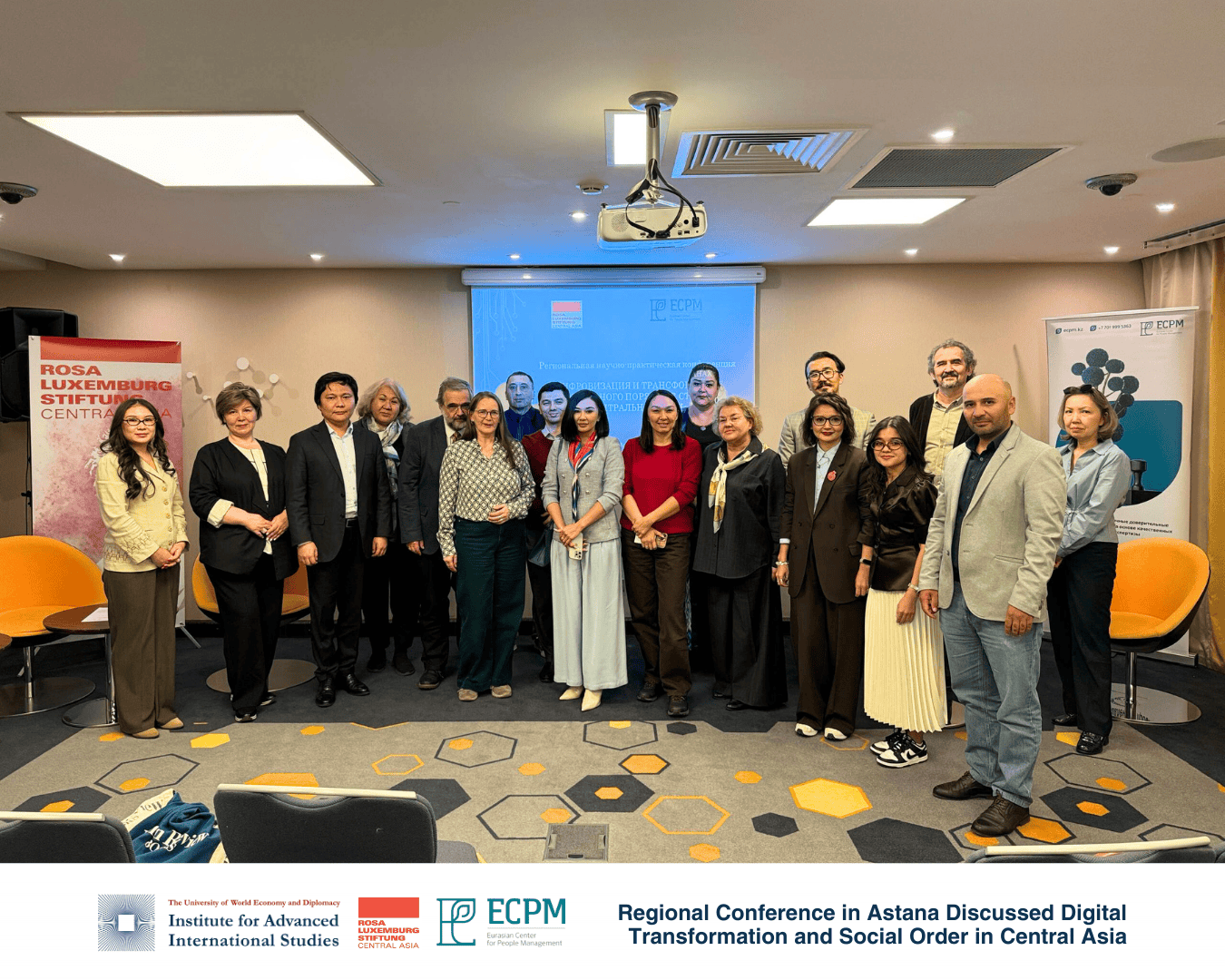
On September 22, Astana hosted a regional scientific and practical conference entitled “Digitalization and Transformation of Social Order in Central Asian Countries”, organized by the Rosa Luxemburg Foundation’s Representative Office in Central Asia and the Eurasian Center for People Management. The event brought together researchers, representatives of the IT sector, academic and expert communities from countries in the region to discuss how digital technologies are changing public institutions, the labor market, and social values.
The four sessions of the conference examined the philosophical, socio-economic, and ethical-legal aspects of digitalization. In the first session, participants reflected on the fundamental changes in the system of knowledge and power brought about by the digital age. Along with other speakers, Rustam Makhmudov, a leading research fellow at IAIS Laboratory of Anthropology and Conflict Studies, noted that digitalization is forming a new configuration of power and knowledge, where algorithms and digital platforms are beginning to play a key role.
The second session was devoted to the digital economy and the transformation of the labor market. During this session, Mushtariy Usmonova, a leading research fellow at IAIS, highlighted the growth in IT service exports, the development of the gig economy, and the formation of a new “IT class” in Uzbekistan. She also pointed out the need to further improve the educational and legal infrastructure for inclusive digital growth.
The third session provided a platform for a techno-humanitarian dialogue on the ethics of artificial intelligence, big data, and social sustainability, while the final session brought together experts in an open discussion on scenarios for the region's digital future and the creation of a regional platform for sharing experiences and developing joint strategies.
The final fourth session brought all participants together in an open discussion. Experts discussed scenarios for the digital future of Central Asia, ways to minimize social risks, and strategic priorities for digital development. Among the proposals was the idea of creating a regional expert platform for sharing experiences and coordinating joint initiatives, which would allow the states, the scientific community, and the private sector to join forces to build a fair and technologically advanced society.
The conference demonstrated that digitalization in Central Asia is perceived not only as technological progress, but also as a key factor in socio-economic and cultural changes that require concerted efforts by scientists, authorities, and businesses to build a fair and sustainable digital society.